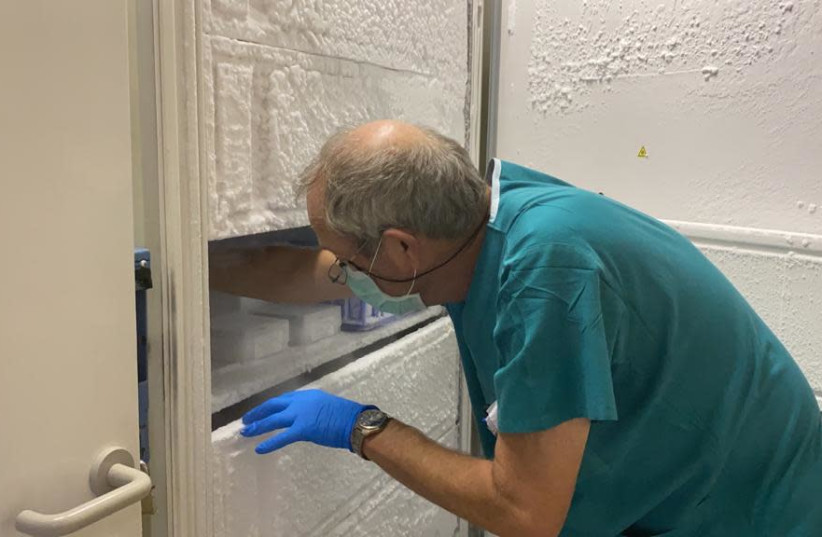Dr. Shmuel Yitzhaki has been appointed director-general of the Israel Institute of Biological Research, Defense Minister Benny Gantz announced Sunday. The appointment will soon be brought to the government for approval, he said.
Yitzhaki has been serving as acting director-general since the previous director-general, Prof. Shmuel Shapira, stepped down in March. He has been working at IIBR for 23 years and helped lead efforts to develop Israel’s coronavirus vaccine, BriLife.
After Shapira stepped down, he said the vaccine had been grossly delayed due to bureaucracy. Since then, the vaccine has shown “promising results,” according to a person familiar with the trials.
In July, IIBR inked a deal with US-based, Nasdaq-traded NRx Pharmaceuticals to fast-track the vaccine. Israel is closing up its Phase II trial, with Phase IIb trials underway in the Caucasus country of Georgia.

A Phase III trial is expected to commence in the coming months.
In an interview with Yediot Aharonot over the weekend, Shapira spoke about a new book he published that reviewed challenges he encountered in developing BriLife.
The Pfizer vaccine was already proving to be less effective than initially believed, he said, adding that the IIBR vaccine would be better.
BriLife is different from the Pfizer and Moderna messenger-RNA vaccines. It is a vector-based vaccine that takes the vesicular stomatitis virus (VSV) and genetically engineers it so that it will express the spike protein of the novel coronavirus on its envelope.
Once injected, it does not cause disease by itself. VSV does not infect humans. Instead, the body recognizes the spike protein that is expressed on the envelope and begins to develop an immunological response.
A few months before Shapira stepped down, he told MKs the country’s vaccine could have been further along if not for the “overregulation” that IIBR encountered.
“We should have been in Phase III,” Shapira said. “I think we have come a long and difficult way. When a [representative of a] prestigious regulatory institute saw what we went through, he said that what we experienced was ‘too complex a path.’”
“I will not expand beyond that,” he said. “Those who understand it will understand.”
